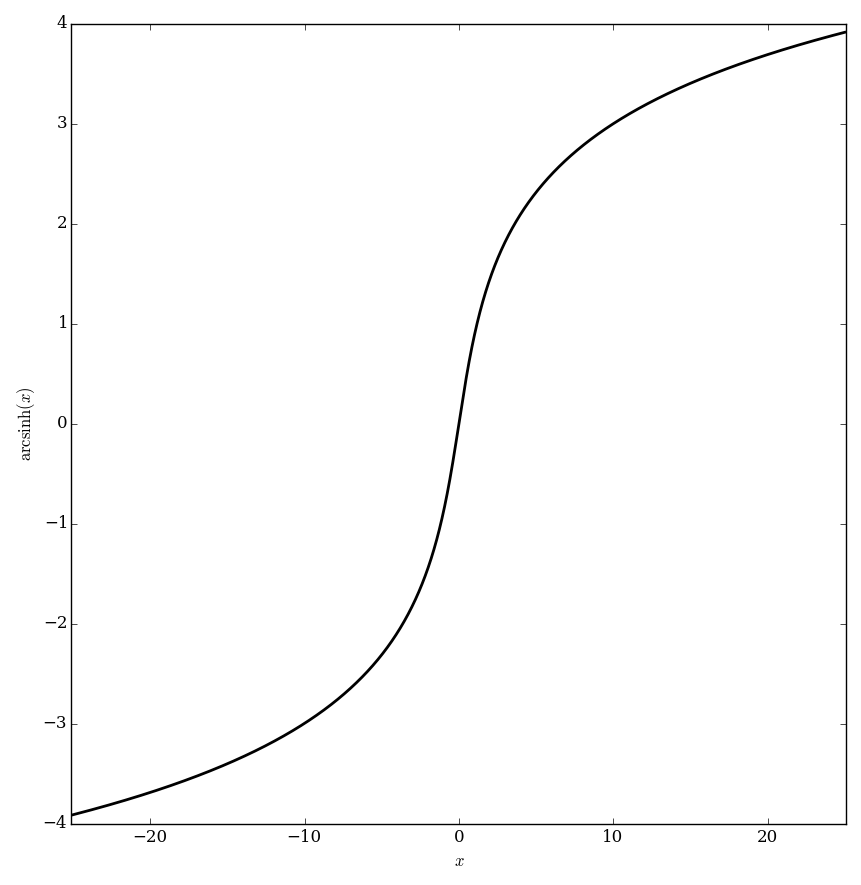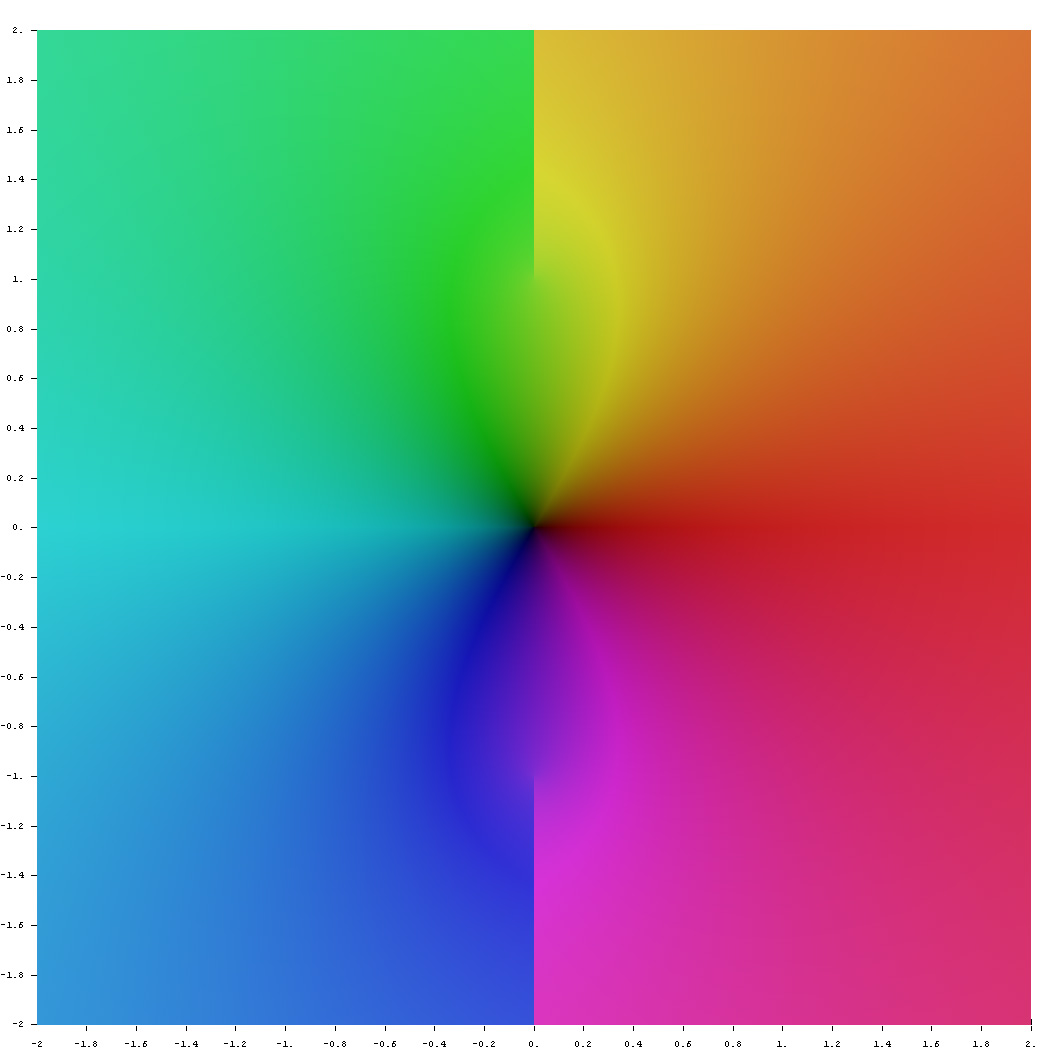Difference between revisions of "Arcsinh"
| Line 1: | Line 1: | ||
| − | The $\mathrm{arcsinh}$ function is the inverse function of the [[sinh|hyperbolic sine]] function defined by | + | The inverse hyperbolic sine function $\mathrm{arcsinh} \colon \mathbb{R} \rightarrow \mathbb{R}$ function is the [[inverse function]] of the [[sinh|hyperbolic sine]] function defined by |
$$\mathrm{arcsinh}(z)=\log\left(z+\sqrt{1+z^2}\right).$$ | $$\mathrm{arcsinh}(z)=\log\left(z+\sqrt{1+z^2}\right).$$ | ||
Revision as of 22:24, 24 May 2016
The inverse hyperbolic sine function $\mathrm{arcsinh} \colon \mathbb{R} \rightarrow \mathbb{R}$ function is the inverse function of the hyperbolic sine function defined by $$\mathrm{arcsinh}(z)=\log\left(z+\sqrt{1+z^2}\right).$$
Domain coloring of analytic continuation of $\mathrm{arcsinh}$.
Properties
Theorem
The following formula holds: $$\dfrac{\mathrm{d}}{\mathrm{d}z} \mathrm{arcsinh}(z) = \dfrac{1}{\sqrt{1+z^2}},$$ where $\mathrm{arcsinh}$ denotes the inverse hyperbolic sine.
Proof
From the definition, $$\mathrm{arcsinh}(z)=\log \left(z + \sqrt{1+z^2} \right).$$ Using derivative of logarithm and the chain rule, $$\begin{array}{ll} \dfrac{\mathrm{d}}{\mathrm{d}z} \mathrm{arcsinh}(z) &= \dfrac{\mathrm{d}}{\mathrm{d}z} \log \left(z + \sqrt{1+z^2} \right) \\ &= \dfrac{1}{z+\sqrt{1+z^2}} \dfrac{\mathrm{d}}{\mathrm{d}z} \Bigg[ z + \sqrt{1+z^2} \Bigg] \\ &= \dfrac{1+\frac{z}{\sqrt{1+z^2}}}{z+\sqrt{1+z^2}} \\ &= \dfrac{\sqrt{1+z^2}+z}{z\sqrt{1+z^2}+1+z^2} \\ &= \dfrac{\sqrt{1+z^2}+z}{z\sqrt{1+z^2}+1+z^2} \left( \dfrac{\sqrt{1+z^2}-z}{\sqrt{1+z^2}-z} \right) \\ &= \dfrac{1}{z(1+z^2)+\sqrt{1+z^2}+z^2\sqrt{1+z^2}-z^2\sqrt{1+z^2}-z-z^3} \\ &= \dfrac{1}{\sqrt{1+z^2}}, \end{array}$$ as was to be shown.

